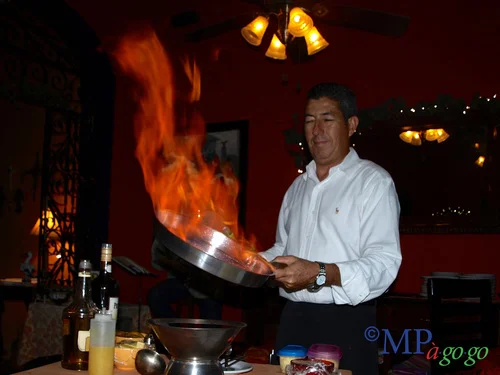1. Know before you go. Do your research. With the internet it is easy to uncover the basics before you travel. Simply Google your destination and you will find maps, images, and articles at your fingertips. Or check out one of the well-known guidebooks— traditional standbys like Frommer’s and Fodor’s or the more adventure-focused Globe Trekker and Lonely Planet—to find out what you need to be on top of your game:
- Weather
- Time zone
- Money exchange rate
- Major landmarks—Capital, cities, rivers, lakes and parks, monuments, churches, museums
- Must sees and attractions
- Famous natives
- Native foods
- Tourist traps
- Local customs
- Tipping policies
- Modes of transportation
- Crime rate and safety precautions
- Maps of your destination and where it fits within the city, state, and country
Once you do your research, you can dress with success for the weather and avoid a cultural faux pas (so you don’t stick out like a tourist with flip flops when you should be wearing boots or maybe even heels) and will be well armed about potentially unsafe conditions and tourist traps.
2. Pack lightly but practically. I know it’s hard to do. And I fail miserably most of the time. But try. Bring layers. And leave room (bring an empty fold-able tote bag or if you are a shopper pack a suitcase inside a suitcase) for those one-of-a-kind mementos you know you will want to bring back. You don’t need to be Rick Steve’s frugal but avoid being Ivana Trump. Err on the lighter side and your feet, back, and fellow travelers will thank you.
3. Learn a few phrases of the local language. Check out a book on tape or CD series before you go and listen to the language. You will be surprised at how much you can pick up just by listening a few times. Bring along a small pocket-size phrase book to have on-hand.
4. Speak as much of the local language as you can muster. Try to out a few simple phrases when you are out and about. The more you speak, the easier it becomes. Have a glass of wine or local drink to relax and lose your inhibitions and then speak up. You will be surprised. It will come in handy. The locals will appreciate it and you will get a surprisingly friendlier response—even from the French—and even if your pronunciation isn’t really great.
5. Stay a little north of center. Try booking a room away from the package deals. If you know a national or expat who resides there, get advice from them. Or try renting a room or vacation home through airbnb, vrbo.com, or flipkey.com. B&Bs and guest houses are great because the owners are typically eager to share their knowledge of the area. Do a Google search to find one for the area you are planning to visit. If you have to go with a package deal, try to book for only the first few nights and find a room for the remainder of your stay. Or if you are just too cautious to try this, book a package for your first visit and look around for more local places to stay on your return.
6. Eat local. Choose places to eat where the locals hang out by asking store owners, vendors, taxi driver, or your concierge. Most B&Bs, guest houses, and some hotels include local restaurant menus and business cards in their communal gathering spaces.
7. Shop at the market and prepare a meal. Or pay to have a local chef prepare one for you. Or take a cooking class. Try at least one new food or drink while you are there.
8. Tune in the local radio and TV stations. Read the local paper. Pay attention to what is happening in the world around you and listen to the locales discuss the daily happenings. Engage in the conversation if you know the language.


